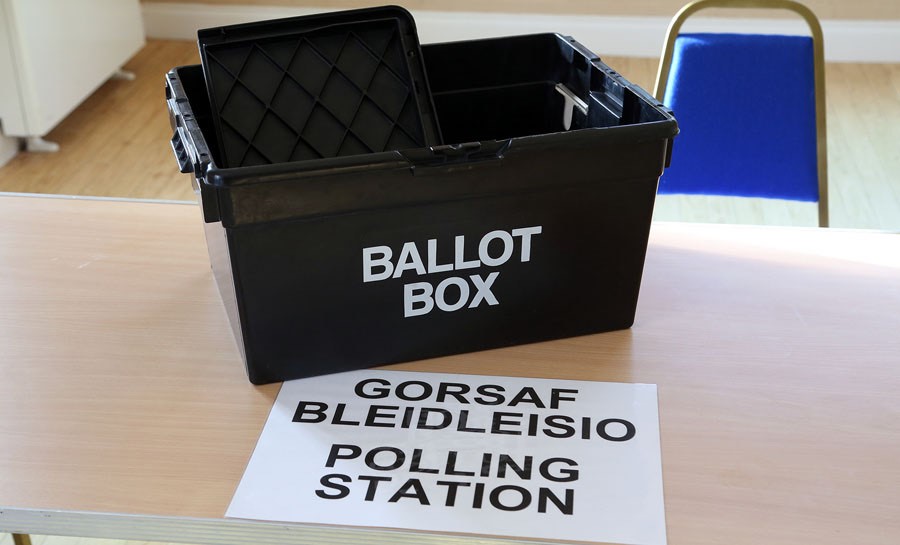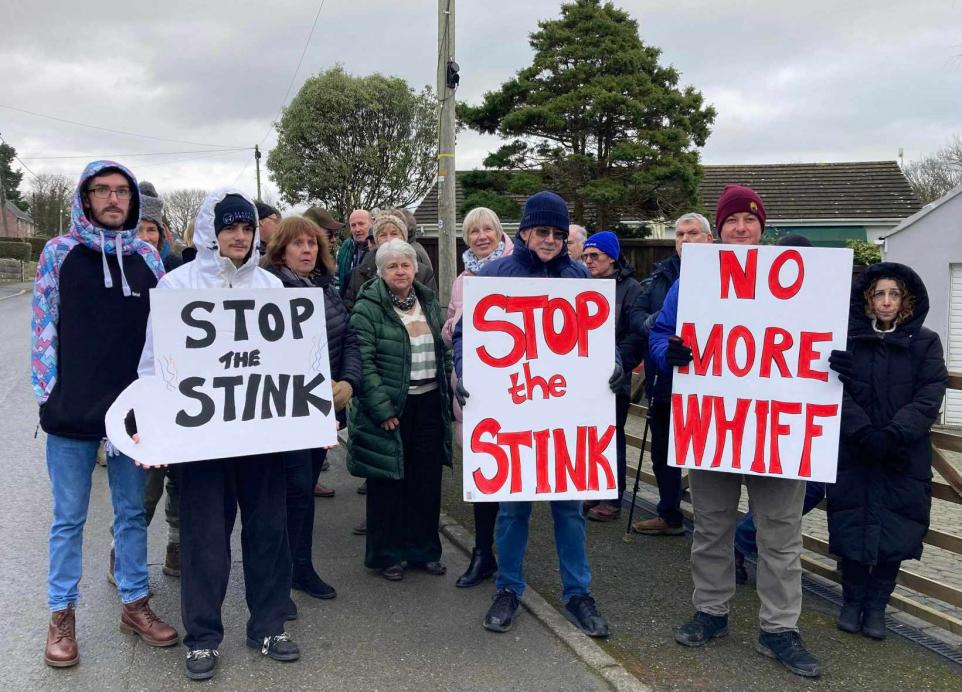Politics
Cameron’s hamstrung Exchequer

Pledges cost money: David Cameron’s hamstrung Exchequer
THE NATIONAL tabloids are often full of foaming at the mouth headlines about ‘scroungers’, stories about ‘dole fiddlers’, and tales expressing horror that some people pretend to be ill to get disability benefits.
That is nothing new and it is conspicuous that there is a spike in such stories (particularly involving those from outside the UK) when governments of whatever complexion have announced ‘welfare reform’ (cuts) ‘designed to deliver to those most in need’ (not those in most in need).
WHERE THE MONEY GOES: PENSIONS
Welfare spending makes up around 35% of the UK Government’s spending and totals over £260b per year. However, ‘welfare’ is a broad term and only a fraction of welfare benefits spending is on unemployment benefits.
The largest amount paid out in welfare benefits is for pensions and the Office for National Statistics’ last available figures show that £108b of the £258b welfare spend in 2014/15 went on pensions.
In fact, total pension spending has increased by 25% since the financial year 2010/11. This isn’t surprising as life expectancy has been steadily increasing, so state pensions are being claimed for longer. The remaining life expectancy for someone aged 65, in 2016, is 21 years for a man and 24 for a woman.
What that means is that the idea that people have ‘paid in what they get out’ is increasingly untrue. Some of those claiming pensions will have contributed comparatively little to their state pensions, whereas actuarial calculations on future pension need carried out when older pensioners were working would have been predicated on them dying within a few years of retirement. The fact that we are all living longer means that the proportion spent on pensions is likely to continue to rise just at the point when the working age population which funds the spending is in decline.
WHERE THE MONEY GOES: CARE AND DISABILITY
£29 b is spent on personal social services. About £41 b goes on benefits for people who are ill or disabled, while £10 b goes on elderly care payments. Disabled people are more likely to live in deprived areas and work in routine occupations. In the 2011 Census, 18% of people (10 million) reported some form of disability.
As for elderly care, there were 9.2 million people aged 65+ in 2011, making up 16% of our population. The care home population has actually stabilised over the last decade at around 300,000 people, but there has been an increase of 600,000 people (likely family members) providing unpaid care between 2001 and 2011. In total, 5.8 million (10%) provided unpaid care in England and Wales in 2011, and the majority were of working age.
W HERE THE MONEY GOES: POVERTY AND THE UNEMPLOYED
£44 b goes on family benefits, income support and tax credits. This includes benefits such as child benefit and support for people on low income. Around £3.5 b goes to the unemployed.
There were around 3 million people in in-work poverty in 2013. This meant their household income (adjusted for household size and composition) was below the poverty threshold and were in employment themselves. The 10% of households with the lowest disposable income spent an average of £196 a week in 2013. Of this, half (£98) was spent on food and non-alcoholic drinks, transport, housing (including net rent), and household fuel and power.
As for out of work people claiming Jobseeker’s Allowance and Universal Credit, there were 760,200 people claiming these benefits in January 2016. This number has decreased by 11.2% compared with a year earlier
WHAT ABOUT FRAUD?
The notion, often pushed by the tabloids, is that there is a massive amount of benefit fraud. A poll carried out by the TUC in 2012 revealed that British people believed that 27% of benefits were claimed fraudulently.
To describe that as a ‘wild overstatement’ does not do how wrong it is justice. It seems to be one of those figures arrived at on the basis that ‘everybody knows’, rather than being remotely founded in reality.
The actual level of all fraud in the UK’s welfare benefits system was 0.8% in 2014/15.
While that is the amount of detected fraud, to suggest that it is completely out of line with actuality is to ignore the fact that the UK government employs 12 times as many benefits fraud investigators than it has tax fraud investigators.
The UK loses six times more through tax evasion and aggressive tax avoidance than the total value of fraudulent welfare benefit claims. Moreover, the UK fails to collect £34b in tax each year. And that is providing you accept the UK government’s figures, which are disputed by some economists as a wild underestimate.
While benefits fraud is an issue, there is an argument that the amount of time spent on it and the amount of publicity it receives is out of all proportion to the actual value of the fraud involved.
University of Warwick political scientist Adam Taylor said: “
This isn’t to say that benefit fraud is OK or that HMRC isn’t doing anything about tax evasion. But it is wrong that the government feels it can openly threaten the poor while merely cajoling the rich. And it is sad that the tax-burdened middle class reserve their outrage for the single mother working in the cafe while lionising the rich, famous and powerful who are getting away with it, tax free.”
WHO PAYS?
Successive governments have been aware of the crisis facing benefit payments for over two decades and yet none of them has sought to do anything more than fiddle at the margins and target the most vulnerable and weakest members of society: the Cameron Government spent an enormous amount of political capital to no good end making an economically pointless adjustment to housing benefit with the hated bedroom tax. The projected savings from that policy were tiny.
In addition, the amount of direct tax paid by the working population is contracting along with the numbers of those in work and the changing profile of work economic activity.
In the past, when the welfare model was fixed, there was generally one full time bread winner per working class family in a job which lasted an entire working life. Stable incomes represented a stable and predictable tax yield. However, the change from a high labour manufacturing economy to a service-based one with lower labour requirements, altered the whole dynamic of working class life. Multiple part time jobs may reduce the number on the unemployed role, but lower income jobs pay less into the UK’s tax base.
So, the question that all governments face is how to provide people with the welfare benefits they need without upsetting voters who have to pay for them.
NO EASY ANSWER
The issue is particularly acute due to David Cameron’s 2015 promise not to raise National Insurance, Income Tax, or VAT. Where else, the question might fairly be asked, would the money come from? Especially as there is a guaranteed 2.5% increase per annum in the state pension.
Oh – and older voters and pensioners vote in far higher numbers than the young. On the basis that turkeys seldom vote for Christmas, you can guess why politicians are wary of doing anything to affect that demographic.
One thing is certain, fiddling at the margins is not enough. But whether politicians have the will to make the sort of changes needed to the UK’s tax and welfare system, is one of those questions to which there is no glib answer.
Which do you prefer, after all, higher taxes or cuts targeted at those least able to defend themselves?
News
Return your postal vote and make your voice count

POSTAL votes for the upcoming Police and Crime Commissioner election can be returned as soon as received.
Those registered should have received their postal vote information and now is the time to fill it in and pop it back in the post.
You must complete the postal voting statement and your ballot paper for your vote to be counted.
Your postal vote pack includes full instructions on how to complete the form and voting ballot.
There will be two envelopes – complete the postal voting statement and include your ballot paper in envelope A before placing that in envelope B, ensuring the freepost return address is visible.
This helpful YouTube video shows how to complete the postal vote documents.
If you need help with your postal vote form you can also call 01437 775844
There are some changes to postal vote submission and you will need to complete a form with our staff if you decide to hand your postal vote in to a polling station or County Hall reception.
News
Transport Secretary champions 20mph speed limit changes in Wales

IN a recent address to the Senedd, Cabinet Secretary Ken Skates unveiled a comprehensive three-phase plan aimed at refining the implementation of 20mph speed limits across Wales. This initiative is part of a broader effort to enhance road safety in residential areas, particularly near schools, hospitals, and other sensitive sites.
Skates emphasised the Welsh Government’s commitment to incorporating the views of Welsh citizens directly into the decision-making process. “We’ve started by listening,” Skates stated, underscoring that the voice of the community is pivotal to the transport policy development. The approach includes a significant public engagement campaign set to run until July, where feedback will be sought from a diverse group of stakeholders including bus drivers, emergency service personnel, businesses, and local council representatives.
The Welsh Government plans to work in close collaboration with local authorities to assess and prepare for the proposed changes. This preparation will involve revising guidelines to determine which local roads might be exempt from the new speed limit, with an updated version expected to be published in July. Following this, councils will initiate detailed consultations from September to ensure community needs are fully addressed.
The phases of the plan as outlined by Skates include:
- A robust national listening programme to gather input on road safety concerns from across the community.
- A partnership with local authorities to prepare for the changes, encouraging public participation in identifying areas where the 20mph limit should be applied.
- Implementation of the changes on the ground, with local authorities adjusting speed limits in accordance with new guidelines and community feedback.
The Cabinet Secretary reiterated the primary aim of the policy: “The principal objective is to save lives and reduce casualties on our roads. We continue to believe 20mph is the right speed limit in key community areas, and what I am doing now is listening to what people want for the roads in their communities, and pressing ahead with refining the policy.”
Skates also made it clear that the final decision on the extent of change would not solely rest with the Welsh Government but would significantly depend on the input from local authorities and the public. Information on how residents can participate in this consultation process will be provided on the Welsh Government’s website, ensuring that all community voices can contribute to shaping the future of their local transport policies.
Responding to a press release from Labour’s Cabinet Secretary for Transport, Natasha Asghar MS, Shadow Transport Minister, said: “Whilst I am waiting with bated breath to hear the Cabinet Secretary outline his transport priorities, I fear all this talk of changes to the government’s flawed 20mph scheme is just another example of Labour ministers paying lip service.
“Ministers might be making all of the right noises on 20mph, but if the Cabinet Secretary is serious about listening to the people of Wales, then he will accept that this law was a terrible mistake and repeal it.
“Only the Welsh Conservatives would scrap this disastrous law and get Wales moving.”
News
NRW issues new enforcement notice at Withyhedge

NATURAL Resources Wales (NRW) has taken further enforcement action at Withyhedge Landfill in Pembrokeshire, setting out the urgent steps its operators must take to address the site’s ongoing odour and landfill gas emission issues.
NRW has issued site operators Resources Management UK Ltd (RML) with a further Regulation 36 Enforcement Notice, which requires the operator to deliver a series of actions by specified deadlines – the first due to be achieved by April 21.
The actions include implementing measures relating to gas management infrastructure, further capping areas of the site, and improving interim cover arrangements as the work progresses.
Each step outlined in the Notice must be completed by May 14.
However, the Notice stipulates that most works must be completed before May 8.
The measures are intended to address the odour issues experienced by communities surrounding the site.
Although actions set out in the Section 36 Notice issued in February to prepare and cap a waste cell and install gas infrastructure to contain and collect landfill gases appear to have been completed, the site operator has identified further areas of the site which could be causing problems.
RML submitted their plans to resolve these issues last week.
The proposed solutions informed the actions included in a new S36 notice issued last week.
The new enforcement activity requires the operator to deliver the additional steps they need to take.
If the actions outlined in this new Notice are not complied with, NRW will not hesitate to take further action. The Welsh Government agency will consider all the regulatory tools available, including issuing a Section 37 suspension notice.
A Section 37 Notice would end operations at Withyhedge
Huwel Manley, Head of South West Operations, NRW, said: “NRW is taking additional enforcement action to ensure RML Ltd. takes the urgent action they have identified needed to control the odour issues at Withyhedge Landfill.
“We fully understand the growing discontent from the affected communities, and we feel that it is unacceptable for residents and visitors to the area to continue to be affected by these odour and landfill gas emissions.
“We want to reassure everyone that we are committed to ensuring RML Ltd. deliver the actions they have identified and that they work quickly to resolve this issue.
“While the pressing work required by the operator progresses over the coming days and weeks, the site remains under investigation, and we will continue our regulatory presence.
“Nothing is off the table. If the series of actions required in this Notice are not complied with, we will have no hesitation to take further enforcement action, considering every option available to us under the regulations, including suspending the environmental permit if appropriate.”
Will Bramble, Pembrokeshire County Council Chief Executive, said: “We are extremely disappointed that RML, the company managing the Withyhedge landfill site, has not delivered the necessary action to stop the completely unacceptable odour emissions.
“We fully support NRW’s additional enforcement action and continue to work closely with them to correct the situation.
“We also support NRW’s intent to take further action should it fail to meet the May 14 deadline, including considering suspending the permit.
“Geotechnology is monitoring under the direction of the air quality cell and liaising directly with residents affected.
“We will ensure the data is made available to the public at the earliest opportunity.”
The controversy over £200,000 in donations to Vaughan Gething’s Labour leadership campaign by companies linked to Withyhedge and a further substantial personal donation by company director David Neal continues to dog Wales’s new First Minister.
As revelations continue to bubble up from under the cap that Mr Gething has tried placing on them, the smell from Withyhedge has reached Cardiff Bay. It is beginning to stink out the Senedd.
More details of that story are elsewhere in this week’s Herald.
NRW requests that instances of odour from the landfill continue to be reported via this dedicated form: https://bit.ly/reportasmellwithyhedge.
-

 News6 days ago
News6 days agoPolice issue update on the search for Luke, missing from Pembroke Dock
-

 News20 hours ago
News20 hours agoPolice and air ambulances at ‘serious incident’ at West Wales school
-

 Sport7 days ago
Sport7 days agoHerbrandston Clinch Promotion to Division One
-

 News5 days ago
News5 days ago20mph U-turn: Some roads will return to 30mph following public outcry
-

 Community5 days ago
Community5 days agoMiracle pup finds her forever home after heart-wrenching journey
-

 Community2 days ago
Community2 days agoCounty Hall to offer space for community banking
-

 Crime3 days ago
Crime3 days agoBrian Davis: Wanted on suspicion of commercial burglary
-

 Crime20 hours ago
Crime20 hours agoPembrokeshire pensioner accused of 17 sexual offences against children























